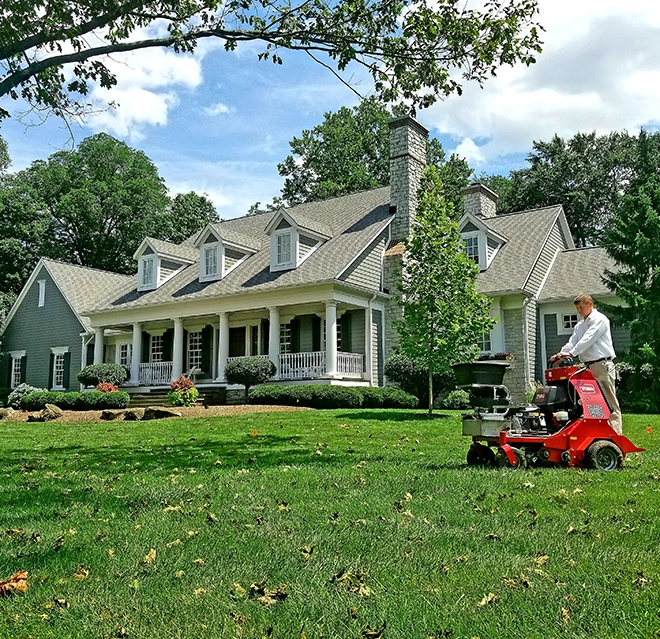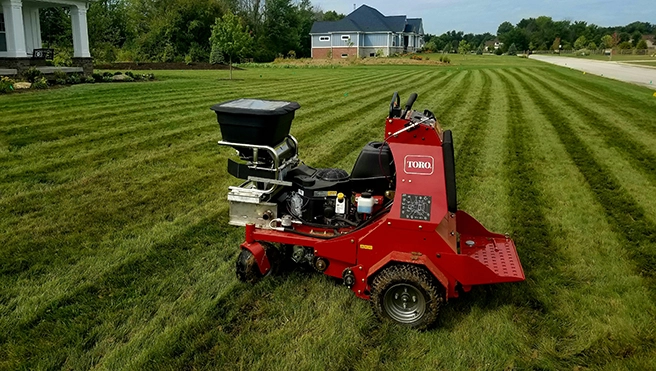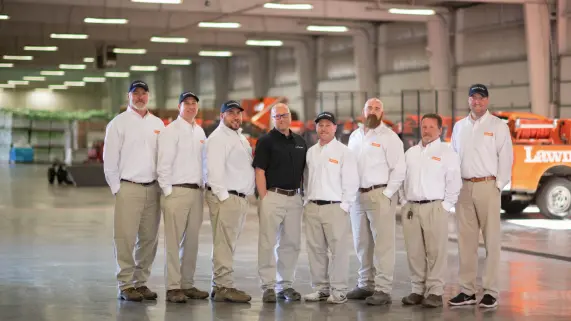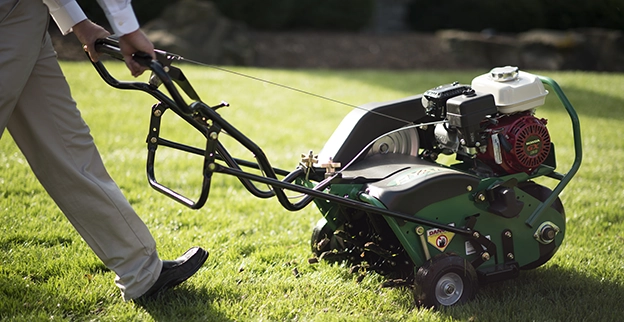Core lawn aeration allows your lawn to thrive, but changing seasons and neglecting your lawn's maintenance can impact your property. Fortunately, the lawn care experts at Lawn Pride® provide nationwide professional lawn aeration to help you keep your property lush, healthy, and beautiful.
Our Lawn Aeration Services: What to Expect

What are the benefits of Core lawn aeration?
Some of the key benefits of professional core lawn aeration services provided by the experts at Lawn Pride include: encourages healthier and stronger grassroots, allows the soil and roots to access water and air, helps break up compacted, dense soil, improves fertilization, prevents mushroom growth, provides insect resistance, improves drought resistance, encourages new grass growth.

Signs Your Lawn Needs Core Aeration
Don’t wait until your lawn is struggling before aerating your grass. Heavy clay soils should generally be aerated twice a year, with annual core lawn aeration for sandy soil. You’ll notice the following signs when your lawn needs aeration:
- Visible thatch build-up
- Heavy clay soils
- Puddle formation on your lawn
- Thinning grass
- Yellow or brown patches
- Water runs off the grass rather than being absorbed
- Grass grows slowly or poorly
If inserting the blade of a screwdriver into your lawn is difficult, it is a clear sign the lawn needs core aeration.
Our Special Offers
We understand your goal to keep your lawn looking its best. We take pride in your lawn because we know you do, too. Check out our special offers to see how you can save on your next lawn care application.
What Our Lawn Aeration Service Includes
If you live in a region with a high amount of clay in the soil, soil compaction can be an issue with your lawn. The best time to core aerate lawns is typically in the spring, fall, or both, depending on your lawn care maintenance needs. Lawn Pride can inspect your property and recommend a proper core lawn aerating schedule.
Other services we provide include:
-
-
Fertilization
Learn More FertilizationTailored services ensure your grass has the nutrients to survive and thrive.
-
Customer Reviews
View All Reviews
The Neighborly Done Right Promise® delivered by LawnPride®, a proud Neighborly company.
Frequently Asked Questions About Core Lawn Aeration Services
Homeowners trust our expertise and come to Lawn Pride with questions about our lawn aeration services and beyond. These are some of the most common FAQs we answer regularly. Have more questions on your mind? Thanks to our extensive experience, we can help! We’re happy to answer questions about our core lawn aeration service and how we work hard to maintain your lawn. Simply reach out to your local Lawn Pride.

Join Our Team
“We have the power to make things better.” That’s our mantra, not only for our customers' lawn issues, but also you, a future team member! At LawnPride, we provide a career path for growth and treat you like family. They know that a happy, motivated team is key to serving customers well. That's why we value integrity and respect and create a strong work ethic.
